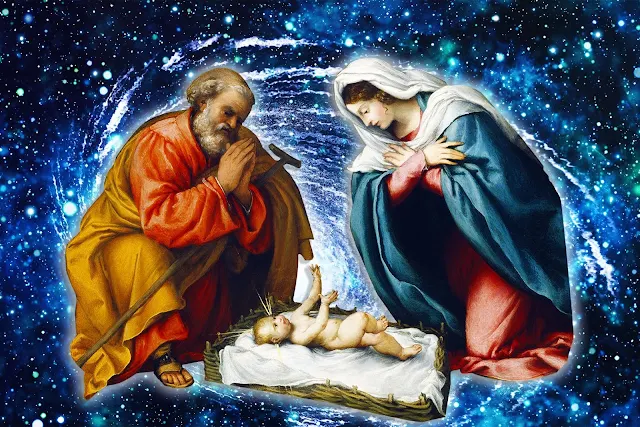I'm not sure if you're familiar with the contemporary progressive theologian Richard Rohr, but I've referenced him several times in addresses. His book Falling Upward is one of the best things I've read on the problem of suffering in years, and has been widely
touted as a modern spiritual classic.
He's Christian, of course. Well, nobody's perfect...
Actually, his progressive Christology is the truest Christology, and one UUs could get behind if they wanted to--namely, that there is a place at the Divine table for everyone, Jew, Roman, Gentile, Greek, saint, sinner, leper, thief,...you name it. The only
type of person Jesus didn't have time for were..…(dramatic pause) hypocrites. Those who espouse high ideals or religious wisdom that they do not put in practice, or indeed even try.
That radically inclusive ethos is, of course, a political statement, for it stands in stark contrast to the familiar political expedience of "othering", which should be all too familiar in the 21st century to anyone paying any attention. Greenies. Boomers.
Inner-city elites. Bogans. Socialists. Fascists. Refugees. "The Gays". Pick your demonizing label, and kick'em to the curb. Or out. This is the opposite to a true following of Jesus--pretty ironic in what they keep reminding us is a "Christian country".
If we UUs are to be a church, rather than a cozy social club of like-minded folks, we are going to need to focus on embodying our progressive principles rather than merely
espousing them. Living our principles in the world, not just in church, will therefore have a political dimension.
…and at the word 'political' some of you reading this will have begun to see
red. Well, that's tough.
A wiser, better known, and more respected theologian than me, Richard Rohr writes:
"But you know what? There is no such thing as being non-political. Everything we say or do either affirms or critiques the status quo. To say
nothing is to say something: The status quo—even if it is massively unjust and deceitful—is apparently okay. From a contemplative stance we will know what action is ours to do, which words we are called to say, and how our spirituality must be fully embodied
in our political choices."
Our recent CHS oration had a political dimension. Was it necessary? Yes, in that humanity has not YET murdered the planet we all inhabit, but the status quo is apparently okay. Certain governments and billionaires seem determined to smother it in the quest
for their personal profit and therefore the power to escape the worst consequences of smothering it. It is impossible to uphold our 7th principle and be utterly 'non-political'.
 |
| Federal Greens Senator Sarah Hanson Young giving this year's Catherine Helen Spence Oration on Climate Change |
Our recent Feast and ITDoR services had a political dimension. Were they necessary? Yes, in that the non-heteronormative are STILL systemically marginalised, demonised, and disappeared in our culture. In reflexively conflating homosexuality with paedophilia,
for example, or in not teaching about the nuanced differences between gender and sex, we still live in a world where sexual binaries are the status quo--you're either gay or straight, man or woman. It is impossible to uphold the 1st principle and be utterly
non-political.
 |
| Adelaide QWIRE making a joyful noise at our recent FEAST service |
And I'm sorry to say it, but Christmas too is political. Muslim, Jew, Atheist, Hindu and Pastafarian--you name it--are required by the status quo to reinforce the privileged cultural hegemony of Christianity, by having to bow in reverence to the annual telling
of this elaborate fairy tale of shepherds, angels, wise men, knowing animals, and a magical baby. I'm not sure what principle this violates, but if we uphold Jesus as actual God, we are probably in the wrong church.
Political too is this: that if Jesus' politically charged teachings of radically inclusive love were good, then it doesn't matter whether he lived or not, let alone what the circumstances of his birth MIGHT have been. Let's put THAT Christ, the progressive,
political Christ, back in Christmas.





